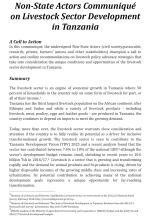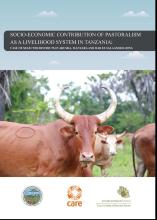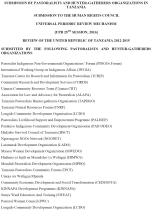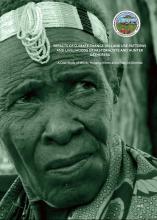Land Library
Welcome to the Land Portal Library. Explore our vast collection of open-access resources (over 74,000) including reports, journal articles, research papers, peer-reviewed publications, legal documents, videos and much more.
/ library resources
Showing items 1 through 9 of 23.The Mekong Region Land Governance (MRLG) project and the Forestry Department of the Ministry of Natural Resources and Environmental Conservation (MONREC) co-hosted the “Mekong Region Customary Tenure Workshop” on 7-9 March 2017 in Nay Pyi Taw, Myanmar.
Summary report of Mekong Region Land Governance (MRLG)'s online dialogue on 'Recognition of Customary Tenure in the Mekong Region' held in 2017, containing justification for the dialogue, key take-aways, next steps and recommended resources, published by MRLG in 2017.
In this communiqué, the undersigned Non-State Actors (civil society,pastoralist, research, private, farmers’ unions and other stakeholders) champion a call to action and outline recommendations on livestock policy advocacy strategies that take into consideration the unique conditions and opportun
Tanzania is endowed with numerous resources including livestock. It is number three country in Africa in terms of livestock population after Ethiopia and Sudan.
This is a stakeholder submission prepared by a coalition of 24 pastoralists and huntergatherers’ Civil Society Organizations (CSOs), forums, networks and groups.
This paper describes the current challenges Myanmar faces to shift to a system more inclusive of multiple interest groups. The authors provide background on the situation in Myanmar and its past levels of performance.
A letter from the Prime Minister dated 16 January 2008, and cited in the Constitution Court Ruling No 15/2552, in defense of the Community Forest Bill shows how “community rights” are often seen as contingent upon the responsibility of the communities to take care of the forest.
Conflict over land, combined with the systematic violation of land rights, is one of the most prominent human rights problems faced by Cambodians. The root of this problem can be traced back to the abolition of private ownership by the Khmer Rouge in 1975.
Over the years, PINGOs Forum has been concerned with the future of Pastoral and HunterGatherer communities with regard to changing patterns of traditional land use and livelihoods options.





